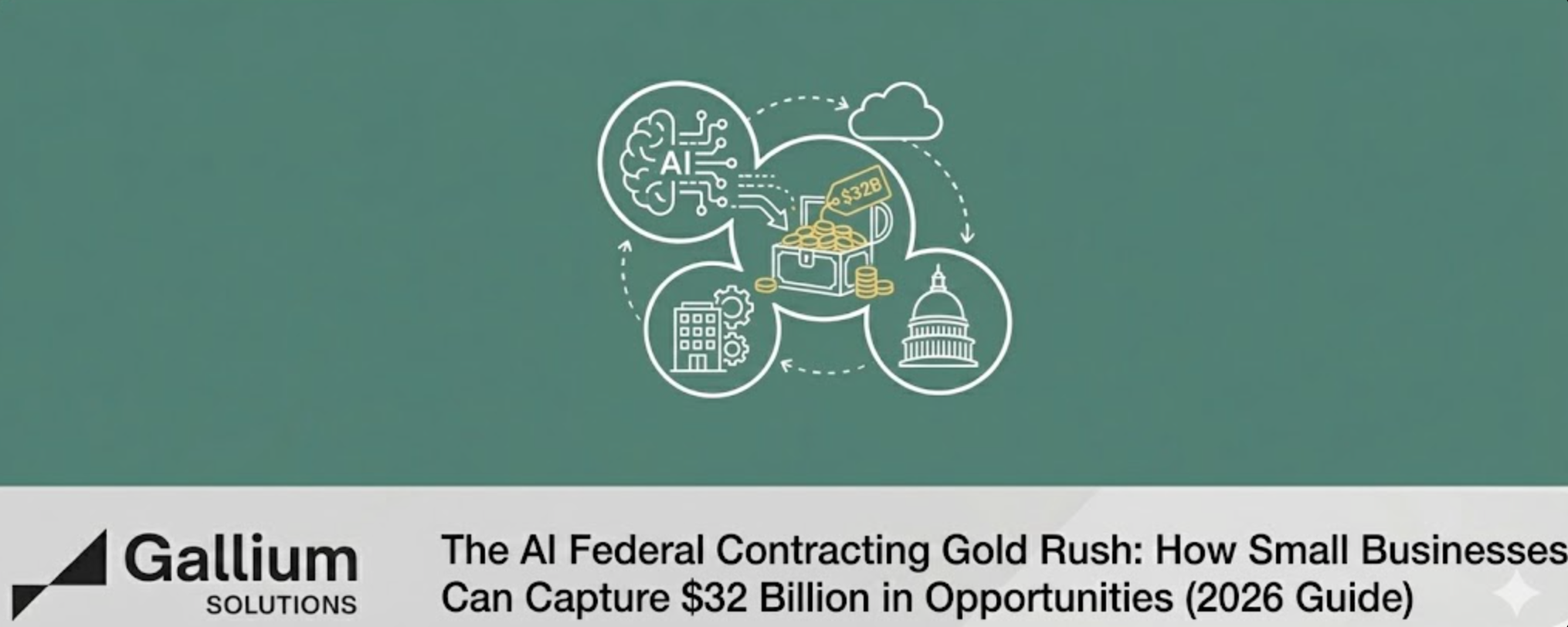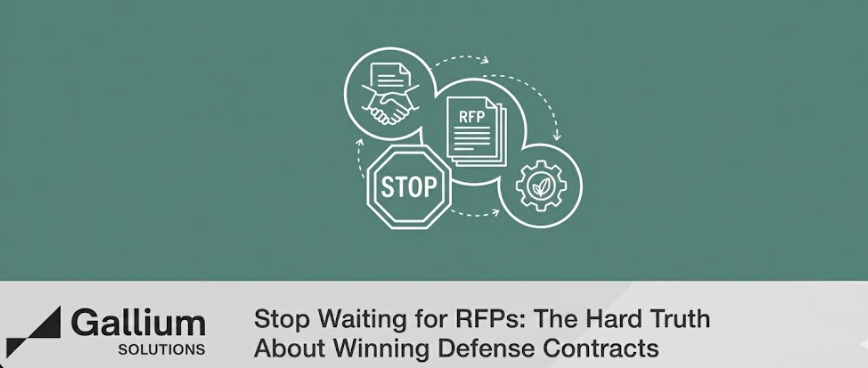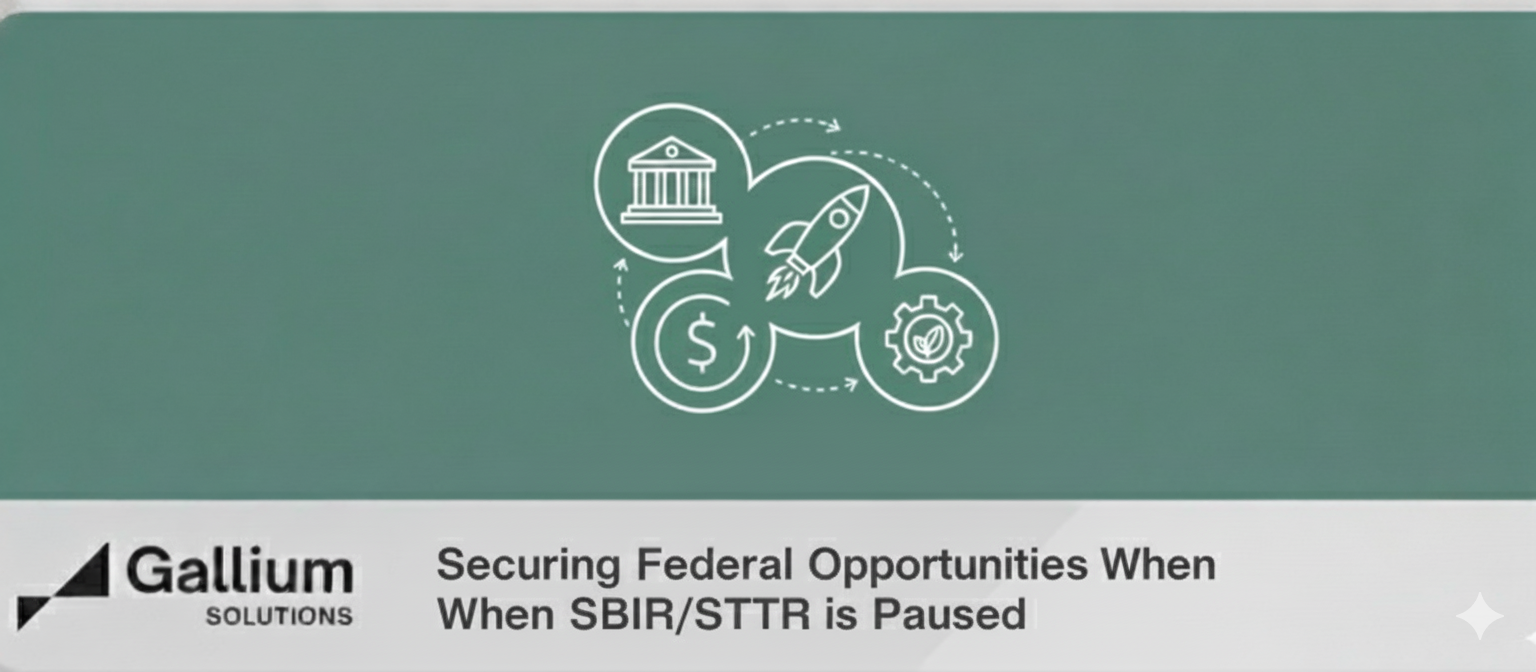How to Win IDIQ Contracts: Tips for Government Contractors

Indefinite Delivery Indefinite Quantity (IDIQ) contracts offer a unique opportunity for businesses learning how to win government contracts. These flexible agreements allow government agencies to procure products or services as needed over a set timeframe without committing to a fixed quantity upfront.
Winning an IDIQ contract can unlock substantial and steady revenue streams, but the competition is fierce, and the requirements surrounding the contracts are stringent. Success depends on more than submitting a compliant bid; it requires a deep understanding of the contractual nuances and tailoring your approach to stand out. Unfortunately, many businesses overlook critical preparation steps or miss out on lesser-known strategies distinguishing between success and failure.
In this article, we’ll break down what you need to know about IDIQ contracts, from the basics to the advanced tips you can leverage to win them consistently.
What Are IDIQ Contracts?
The term ‘indefinite delivery indefinite quantity’ refers to a government contract that provides maximum flexibility for both the contractor and the contracting agency. Unlike traditional government contracts with fixed quantities or timelines, agencies structure IDIQ contracts to address unknown factors. This structure means the agency can order services or products as needed, up to a specified maximum value, over the contract's life.
IDIQ contracts are particularly well-suited for scenarios where the scope of work may vary over time, or the precise demand is difficult to forecast. For example, industries such as IT services (e.g., software development or cybersecurity solutions), construction (e.g., facility maintenance or infrastructure projects), and supply delivery (e.g., medical equipment and office supplies) often use IDIQ contracts.
These contracts allow government agencies to efficiently manage fluctuating needs while ensuring they have access to pre-approved vendors capable of delivering high-quality work.
How Do IDIQ Contracts Differ From Time-and-Materials Contracts?
In a fixed-price contract, the contractor agrees to deliver a specific set of goods or services for a predetermined price, regardless of how an agency’s needs change. On the other hand,time-and-materials contracts allow for some cost flexibility but typically require more detailed oversight from the contracting agency.
IDIQ contracts allow agencies to define the ‘what’ (the type of work or product) without specifying the ‘how much’ at the time of award. This definition makes them ideal for situations where you can anticipate recurring needs, but the precise quantities needed remain uncertain. One example is when a federal agency anticipating ongoing IT system upgrades may use an IDIQ contract to ensure it can procure the necessary services over 3-5 years, avoiding the delays and administrative burdens associated with issuing multiple contracts for each task.
Agencies often see IDIQ contracts as a strategic tool for efficient resource management. They can streamline their procurement processes by pre-negotiating rates, establishing long-term relationships with reliable contractors, and ensuring they meet evolving needs within budget constraints.
Efficiency and due diligence are everything when submitting a successful bid for an IDIQ contract. Let’s look at what you need to know to prepare and submit applications that provide you with the best potential for success.
How to Prepare for IDIQ Opportunities
Preparing to submit a successful bid for an IDIQ contract begins with in-depth research and proper targeting of your application to the organizations that would be naturally interested.
Research and Targeting
Winning an IDIQ contract begins with strategic research. Your company must focus on identifying agencies that frequently issue contracts for indefinite delivery of indefinite quantities, such as the Department of Defense (DoD) or the General Services Administration (GSA).
These agencies often use IDIQ contracts to address recurring IT services and construction needs. Tools like SAM.gov help you monitor upcoming opportunities, review past contract awards, and identify trends in IDIQ procurement. Pair this research with procurement forecasts and agency-specific events to uncover actionable insights and tailor your approach.
This process is easier to tackle when you have a collaboration partner available to work with, and this is exactly part of what we provide at Gallium Solutions.
Targeting the right opportunities also means understanding each agency's unique needs. Look for solicitations where your expertise directly aligns with the agency’s priorities, and study the agency's award history to identify preferred contractors and common service types. Building these insights into your preparation helps ensure you position your business where it will most likely succeed.
Compliance & Registration
A solid foundation of compliance is critical when pursuing IDIQ contracts. Begin by registering your business in the System for Award Management (SAM), which is mandatory for all federal contractors.
During registration, provide accurate details about your industry codes (NAICS), past performance, and applicable certifications such as ISO standards or small business designations like 8(a) or HUBZone. These details make your business more appealing and trustworthy to contracting officers than if you do not provide them, and agencies must search for them independently.
Beyond registration, compliance also involves readiness to meet agency-specific requirements.
Many agencies value demonstrated expertise through past performance evaluations and require adherence to strict security or quality standards. Maintaining robust records and clear documentation of successful projects positions your business as a dependable and credible partner.
Compliance is one element of a strong proposal foundation, but you need to consider several other factors during the process.
Building a Strong Proposal Foundation
Your proposal is the key to winning an IDIQ contract.
It must emphasize flexibility, scalability, and proven results. Flexibility demonstrates your ability to adapt to unpredictable demands, while scalability highlights your capacity to handle varying workloads. Use measurable examples of past performance—such as cost savings, efficiency gains, or successful delivery on similar contracts—to underscore your reliability and expertise.
Tailoring your proposal to each opportunity is equally important. Address the agency’s unique priorities to understand its specific goals and challenges clearly. A well-structured proposal that combines responsiveness with a track record of success meets the agency’s immediate needs and communicates your value as a long-term partner for its IDIQ requirements.
The entire IDIQ contracting process is grounded in strategy.
Consider and apply four specific strategies as you work on your application, whether with a partner or independently.
Four Important Strategies for Winning IDIQ Contracts
Here are the four strategies to lean into - not necessarily in order of importance:
- Emphasize past performance
- Understanding and talking about unit pricing
- Build relationships with the right contracting officers
- Form powerful strategic partnerships
Let’s break each of these down in more detail.
Emphasize Past Performance
Showcasing a strong track record is essential to winning an IDIQ contract. You should highlight successful projects with scopes and challenges similar to the contract you’re pursuing, focusing on measurable outcomes such as cost savings, improved efficiency, or timely delivery. Combining these elements creates a compelling story that positions your company as a proven and trustworthy partner.
Understanding and Talking About Unit Pricing
Unit pricing is critical with IDIQ contracts, as agencies prioritize cost-effectiveness without sacrificing quality. Your pricing should be competitive while ensuring profitability, which requires a thorough understanding of industry standards and a strategy for offering innovative, cost-saving solutions. To stand out as a bidder offering both affordability and strategic benefits, highlight how your pricing structure delivers long-term value through reduced maintenance costs or operational efficiencies.
Build Relationships with the Right Contracting Officers
Developing relationships with contracting officers can give you a competitive edge in securing IDIQ contracts. Attending industry events, government contracting days and networking events is worth your time to engage directly with these decision-makers and gain insights into their agency’s priorities. Understanding their expectations allows you to craft proposals that align with their specific goals, whether technical innovation, cost efficiency, or rapid delivery, making your bid more likely to resonate.
Form Powerful Strategic Partnerships
Strategic partnerships can strengthen your bid for IDIQ contracts by allowing you to offer more comprehensive solutions. Collaborate with companies that complement your strengths to address a wider range of agency needs. If you’re newer to IDIQ contracts, taking on a sub-contract with an experienced prime contractor can help you gain critical experience, build credibility, and expand your network. These partnerships enhance your immediate proposals and position you for future opportunities in government contracting.
With our extensive experience helping growing companies like yours win government contracts, we can offer a few specific tips and tricks as a partner. Still, consider them if you apply for IDIQ contracts independently.
Three Tips and Tricks for Winning IDIQ Contracts
There are three important things to consider when you’re preparing to apply to win an IDIQ contract:
- Use Freedom of Information Act (FOIA) requests
- Prepare for task orders
- Actively demonstrate flexibility and scalability
Let’s take a look at these in more detail.
Leverage Freedom of Information Act (FOIA) Requests
Leveraging FOIA requests can help you build a strategic advantage when bidding on IDIQ contracts. When you submit an FOIA request, you can access the records of previously awarded IDIQ contracts, which include pricing structures, evaluation criteria, and the key factors that led to a successful bid.
This information helps you gain insights into agency preferences and competitive benchmarks, enabling you to craft a more informed and strategic proposal. Understanding what has worked in the past gives you an edge in aligning your bid with the agency’s expectations.
Prepare for Task Orders
Winning an IDIQ contract is just the first step. Success comes from efficiently responding to the task orders issued under the contract. You need to develop a streamlined system that allows your team to quickly assess, prioritize, and respond to task order requests.
This system might include pre-prepared templates, clear workflows, and decision-making protocols to ensure your proposals are timely, accurate, and tailored to the specific task requirements. Delivering fast, high-quality responses helps you win more task orders and positions you as a reliable and proactive contractor who will be a great long-term partner.
Actively Demonstrate Flexibility & Scalability
Agencies value contractors that can easily adapt to unpredictable demand, a core element of indefinite delivery indefinite quantity contracts. Showcase your ability to scale operations, allocate resources efficiently, and handle fluctuating workloads without compromising performance. Include examples of how your business has successfully pivoted or expanded to meet shifting client needs. Demonstrating flexibility and scalability reassures agencies that you can handle the uncertainties and evolving requirements inherent to IDIQ contracts.
Landing IDIQ contracts certainly doesn’t come without some built-in challenges. These aren’t easy to overcome but with the right guidance you can quickly work through them and build an attractive and undeniable application to the right government agencies.
Three Common Challenges in IDIQ Contracting (and How to Overcome Them)
There are three specific challenges that most companies encounter when working to secure IDIQ contracts that we help people navigate at Gallium:
- Uncertain task orders or demand
- Intense competition in your niche
- Actively managing compliance and reporting
Let’s take a look at each of these more closely.
Challenge No. 1: Uncertain Task Orders or Demand
One of the defining characteristics of indefinite delivery indefinite quantity contracts is their unpredictable nature. Agencies may issue task orders sporadically, making it difficult for contractors to forecast workloads and allocate resources effectively.
To overcome this challenge, you have to maintain operational flexibility and scalability. Develop a staffing strategy that includes on-demand resources, subcontractors, or specialized teams that can be activated quickly when most needed. Invest in systems or tools that allow you to shift personnel, equipment, or operations as new task orders arise. A proactive approach ensures you can respond efficiently while meeting agency expectations.
Challenge No. 2: Intense Competition in Your Niche
The competitive landscape for IDIQ contracts is fierce, with numerous companies vying for the same opportunities. Differentiate your proposal with value-added services, innovative solutions, and exceptional responsiveness to stand out. Highlight your unique strengths, such as advanced technical capabilities, cost-saving innovations, or rapid delivery processes that set your business apart. Agencies issuing IDIQ contracts value partners who can bring more than just the minimum requirements, so tailor your proposal to emphasize the additional benefits you bring.
Responsiveness during the bidding process and when fulfilling task orders also builds more confidence in your ability to deliver.
Challenge No. 3: Actively Managing Compliance & Reporting
Staying compliant with government regulations and meeting reporting requirements can be a major hurdle for contractors working under IDIQ contracts. These contracts often involve extensive documentation, from financial reports to performance updates, which can become overwhelming without the right system.
To simplify this process, leverage tools and software designed to automate compliance tracking, reporting and document management. Solutions like project management platforms or government contracting software can ensure accuracy and timeliness while reducing administrative burdens. By streamlining compliance processes, you can focus more resources on delivering value and maintaining strong performance.
In Conclusion
Winning an IDIQ contract requires more than a basic understanding of the process; it demands a well-rounded strategy that incorporates research, preparation, and adaptability. From understanding the nuances of indefinite delivery indefinite quantity contracts to crafting standout proposals, the path to success involves mastering key elements such as compliance, pricing strategies, and relationship-building with contracting officers. Each step prepares your business to not only win the contract but to excel in delivering on the task orders that follow.
By emphasizing past performance, leveraging innovative solutions, and forming strategic partnerships, you position yourself as a reliable and forward-thinking contractor. Proactively addressing common challenges—like unpredictable demand or compliance burdens—ensures that you’re ready to navigate the complexities of IDIQ contracts with confidence.
With these strategies and insights in hand, your business can secure consistent government work and unlock the growth opportunities these contracts offer. Whether you’re taking your first steps into the IDIQ space or refining your approach, the right preparation and execution will set you apart from the competition and pave the way for long-term success.
Gallium Solutions specializes in navigating the complexities of government funding programs and proposal development. We can ensure that your IDIQ application stands out, aligns directly with agency funding priorities, and addresses all necessary criteria.
To learn more about how we work, click here, and we’ll get in touch to kickstart a conversation!












